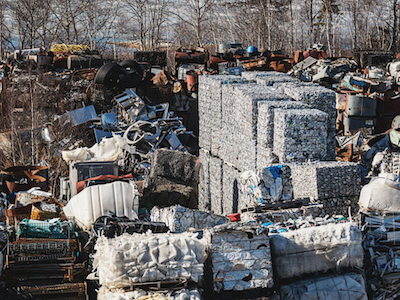Market
December 14, 2023
Asian scrap prices rebound, backed by rises elsewhere
Scrap prices rose m/m in all major Asian markets. Besides more restocking demand from Southeast Asia, the sharp increase in US scrap prices has pushed up import prices in the Asian markets and enabled Asian exporters to raise offer prices.
Chinese domestic scrap prices rose to RMB2,910 /t in mid-November and stabilised at this level until mid-December, registering a rise of RMB50 /t m/m. Supportive macro-economic policies stimulated speculative buying for steel and lifted steelmaking margins, leading to active scrap purchases, and contributing to the price increase in mid-November.
Discussions around more funding support for listed real estate developers, and the announcement that part of the special purpose bond quota for 2024 will be brought forward and issued in end-2023, have led to an increase in steel prices – especially for longs. Margins for both integrated mills and independent EAFs improved by 1–2% in mid-November and have stayed positive until now. As a result, mills lifted scrap bids to attract more supply for them to ramp up steel output afterwards.
After mid-November, however, Chinese domestic scrap prices stabilised amid stronger supply availability. Despite an increase in scrap consumption, supported by higher EAF utilisation rates and higher scrap usage for BOF-based production, scrap supply has increased in line and even exceeded mills’ daily consumption in some cases. Scrap processors actively destocked in the past month and mills held scrap bids unchanged with no further concerns on securing supply.
Scrap import prices to Vietnam are up by $15 /t m/m, supported by restocking needs in the region, as scrap inventory in the country is low. Higher billet prices in Asia also mean that sellers can afford to accept higher scrap prices.
Japanese scrap export prices have also rebounded after two-months of decline, up by ¥2,780 /t (~$19 /t) m/m. Vietnamese buyers are purchasing actively from Japanese suppliers ahead of the holiday period, while South Korean buyers have remained on the sideline. Moreover, higher offers from the USA have pushed up negotiated prices to its export destinations in Asia, including Vietnam and Taiwan (China), hence enabling Japanese sellers to lift prices. In Japanese domestic market, Tokyo steel lifted scrap bids by ¥500 /t for all plants in early-December, and other producers followed suit, leading to a m/m increase in domestic scrap prices.
Meanwhile, HMS 80:20 scrap price in Bangladesh is up by $20 /t m/m to $430 /t CFR due to tightening external supply. Only few offers have been made to Bangladesh market as major scrap exporters are allocating higher volumes to either their local markets or within the Atlantic basin. With improving domestic longs demand in Bangladesh, mills have been raising operating rates and demanding more scrap. However, longs prices remain subdued as buyers are unwilling to accept price increases, which limit the scope for steelmakers to lift their scrap bids.






